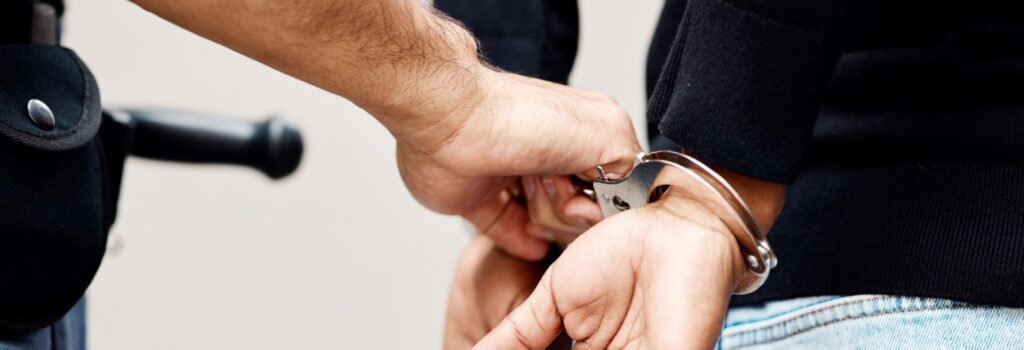Should/Can I Refuse a Field Sobriety Test? As opposed to chemical tests (like breathalyzers) that fall under Missouri’s Implied Consent Law, Field Sobriety Tests (FSTs) are voluntary. You can legally refuse a FST if you’re pulled over for suspicion of DWI/DUI. No matter the particulars, the Combs Waterkotte DWI/DUI attorneys say that you should absolutely refuse an FST.

Call our experienced legal team now at (314) 900-HELP or contact us online for a free, confidential case review where you can discuss the specifics of your case with one of our expert DWI/DUI defense lawyers.
What is a Field Sobriety Test?
FSTs are a series of physical and cognitive tests that law enforcement uses to assess whether a driver is impaired. They are highly subjective. Common tests include:
- Horizontal Gaze Nystagmus (HGN): The officer observes the driver’s eyes as they move horizontally, typically following a pen, to detect involuntary jerking.
- Walk and Turn (WAT): The driver walks in a straight line, turns on one foot, and returns to the starting position.
- One-Leg Stand (OLS): The driver stands on one foot and counts aloud until instructed to stop.
Your Right to Refuse a Field Sobriety Test
Again, unlike breathalyzers, or blood or urine tests, FSTs are entirely voluntary. You have the right to refuse to take these tests without facing automatic penalties like license suspension. However, refusing an FST can still have consequences, including:
- Suspicion & Arrest: Refusing to take an FST may increase the officer’s suspicion that you are impaired, leading to your arrest. The officer can still arrest you based on other observations, like your driving behavior, the smell of alcohol, or slurred speech.
- Used as Evidence: Your refusal can be used as evidence against you in court, possibly supporting the officer’s claim that you were impaired.
- No Automatic Penalties: Unlike refusing a breathalyzer, refusing an FST does not carry immediate penalties, such as an automatic suspension of your license.
Weighing the Decision of Whether to Refuse a Field Sobriety Test
While our lawyers stand by the opinion that you should absolutely refuse an FST, this decision is personal. A clear understanding of your rights and the potential consequences is crucial.
- Taking the Test: If you’re confident that you’re not impaired, or only had “one glass of wine at happy hour,” taking the test might show that you’re sober, potentially preventing further legal action. However, even sober individuals can sometimes fail these tests due to nerves, medical conditions, or environmental factors – and that’s important to remember.
- Refusing the Test: If you believe the test results could be used against you, refusal might prevent the officer from gathering additional evidence of impairment. However, this could still lead to an arrest based on other observations.

If you’re uncertain of what to do if you get pulled over for suspicion of DWI/DUI in Missouri, call Combs Waterkotte now at (314) 900-HELP or contact us online. Our DWI/DUI attorneys are available for a free, one-on-one consultation where they can provide legal expertise and guidance.






